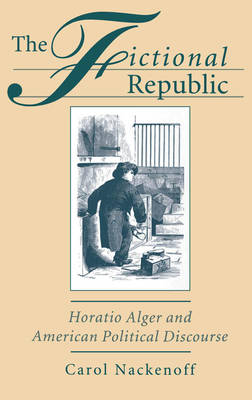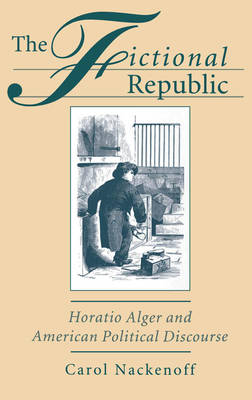
- Afhalen na 1 uur in een winkel met voorraad
- Gratis thuislevering in België vanaf € 30
- Ruim aanbod met 7 miljoen producten
- Afhalen na 1 uur in een winkel met voorraad
- Gratis thuislevering in België vanaf € 30
- Ruim aanbod met 7 miljoen producten
Zoeken
Fictional Republic
Horatio Alger and American Political Discourse
Carol Nackenoff
Hardcover | Engels
€ 68,95
+ 137 punten
Omschrijving
Investigating the persistence and place of the formulas of Horatio Alger in American politics, The Fictional Republic reassesses the Alger story in its Gilded Age context. Carol Nackenoff argues that Alger was a keen observer of the dislocations and economic pitfalls of the rapidly industrializing nation, and devised a set of symbols that addressed anxieties about power and identity. As classes were increasingly divided by wealth, life chances, residence space, and culture, Alger maintained that Americans could still belong to one estate. The story of the youth who faces threats to his virtue, power, independence, and identity stands as an allegory of the American Republic. Nackenoff examines how the Alger formula continued to shape political discourse in Reagan's America and beyond.
Specificaties
Betrokkenen
- Auteur(s):
- Uitgeverij:
Inhoud
- Aantal bladzijden:
- 13
- Taal:
- Engels
Eigenschappen
- Productcode (EAN):
- 9780195079234
- Verschijningsdatum:
- 14/04/1994
- Uitvoering:
- Hardcover
- Formaat:
- Genaaid
- Afmetingen:
- 163 mm x 236 mm
- Gewicht:
- 766 g

Alleen bij Standaard Boekhandel
+ 137 punten op je klantenkaart van Standaard Boekhandel
Beoordelingen
We publiceren alleen reviews die voldoen aan de voorwaarden voor reviews. Bekijk onze voorwaarden voor reviews.











